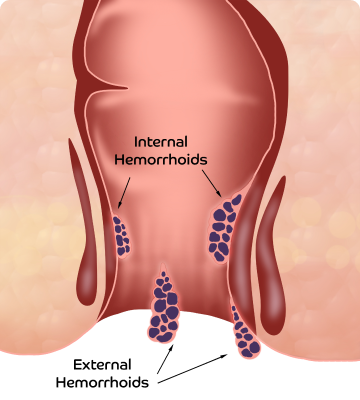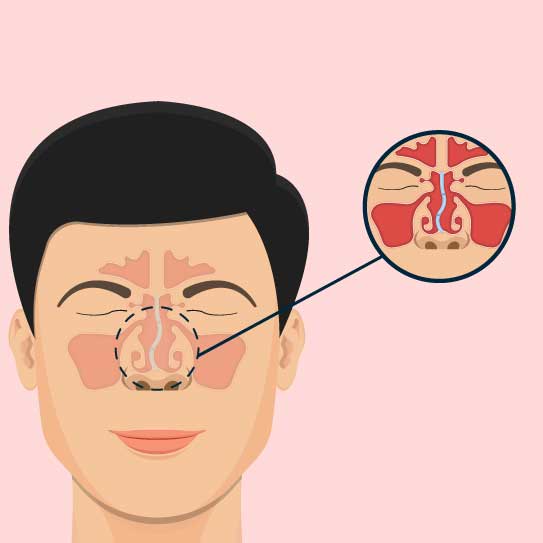Diagnostic procedures for deviated septum surgery
A deviated septum can be easily diagnosed by a physical examination. To check the shape and size of the nostrils, the doctor uses a bright light and speculum (to spread open the nostrils).
In addition to physical examination, imaging tests like X-rays are performed to see the internal structures of the nose. The doctor also uses a long tube-shaped scope with a bright light at the tip to check the back of the nose. This procedure is called an endoscopy.
Based on the results of this physical examination, the doctor can clearly and easily diagnose a deviated septum and determine its severity. While the diagnosis can be performed by any doctor, only an ENT specialist can provide treatment for it.
Treatment for nasal septum deviation
Initial treatment for a deviated septum is aimed at managing the symptoms and making the patient’s life easier in the short term. This includes decongestants, antihistamines, and nasal steroid sprays, to keep the airways open and make breathing easier.
Medicines can only treat symptoms, they cannot correct a deviated septum. Once the symptoms are managed, surgery is necessary to eliminate the chances of recurrence of nasal infections.
Typically, the best treatment for a deviated septum is a septoplasty.
During a septoplasty, the nasal septum is straightened and repositioned at the center of the nose. The surgeon cuts and removes parts of the nasal septum before re-inserting them in their proper position. A septoplasty procedure can take about 30-90 minutes, based on the amount of correction needed.
After the surgery, the nose is immobilized using splints and soft tissue packs to prevent future nosebleeds and the formation of scar tissue. The splints are removed 1-2 weeks after the surgery but the tissue packing in the nose is removed within 2-3 days. Splints help the nose heal in its new position. For better aesthetic results, the procedure may be combined with a rhinoplasty.
At Pristyn Care, you can avail surgery for deviated septum from the best ENT doctors near you. Book a free consultation with the best ENT doctors in Kochi without any hassle.










.svg)









